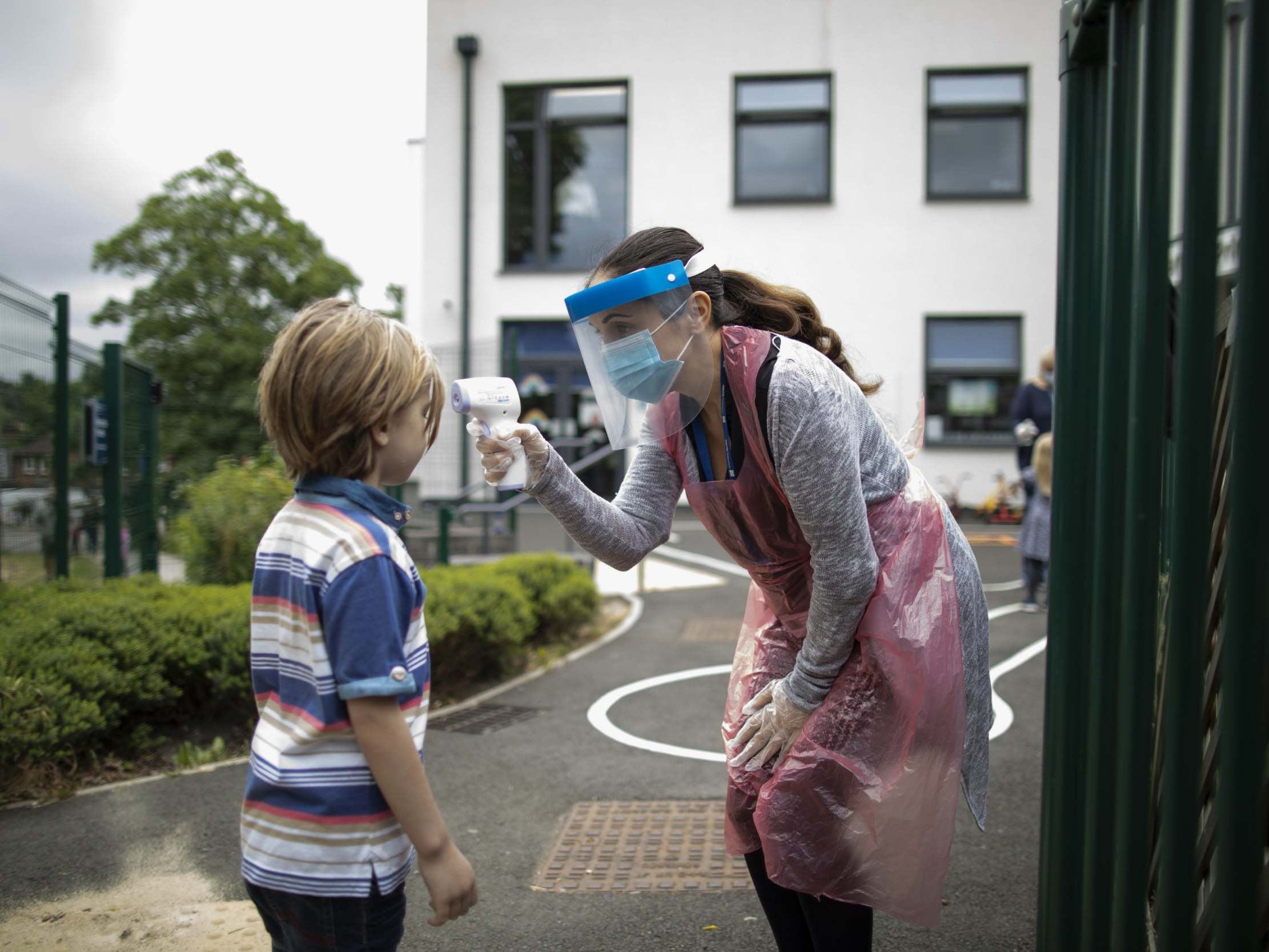Children with coronavirus may have neurological instead of respiratory symptoms, study suggests
Inflammatory disease previously identified in up to 300 children in UK

Your support helps us to tell the story
From reproductive rights to climate change to Big Tech, The Independent is on the ground when the story is developing. Whether it's investigating the financials of Elon Musk's pro-Trump PAC or producing our latest documentary, 'The A Word', which shines a light on the American women fighting for reproductive rights, we know how important it is to parse out the facts from the messaging.
At such a critical moment in US history, we need reporters on the ground. Your donation allows us to keep sending journalists to speak to both sides of the story.
The Independent is trusted by Americans across the entire political spectrum. And unlike many other quality news outlets, we choose not to lock Americans out of our reporting and analysis with paywalls. We believe quality journalism should be available to everyone, paid for by those who can afford it.
Your support makes all the difference.Children infected with coronavirus may exhibit neurological symptoms instead of the respiratory symptoms Covid-19 patients normally have, according to a new study.
Researchers said experts should consider the virus may be present when children present with signs of encephalopathy – damage or disease to the brain, headaches, brainstem and cerebellar signs – critical abnormalities in the control of automatic functions like breathing and heartbeat, muscle weakness and reduced reflexes.
This is because respiratory symptoms are are uncommon in children or may be mild and easily missed, they suggested. Data also indicates that children can carry the virus that causes Covid-19 without displaying any symptoms.
Doctors previously identified links to coronavirus to a new condition that presents only in children, named Paediatric Inflammatory Multisystem Syndrome Temporally associated with SARS-CoV-2 (PIMS-TS).
The illness was first identified in April, and bore resemblance to Kawasaki disease, an inflammatory condition that causes blood vessels to swell.
Up to 300 cases of the disease have been identified in children in the UK.
The authors of the new research, which was published in medical journal JAMA Neurology, said: “Children with Covid-19 may present with new neurological symptoms involving both the central and peripheral nervous system and splenial changes on imaging, in the absence of respiratory symptoms.
“This diagnosis should be considered within the different diagnosis of splenial lesion.”
The study examined patients below the age of 18 with the SARS-Cov-2 infection and neurological symptoms who were admitted to Great Ormond Street Hospital for Children between 1 March and 8 May.
27 children had Paediatric Inflammatory Multisystem Syndrome, of which four who were previously healthy had newly-onset neurological symptoms. All four patients had to be admitted into intensive care for treatment.
Dr Ming Lim, a consultant paediatric neurologist and reader in paediatric neurology at King’s College London, said: “In recent months, a novel post-infection hyper-inflammatory syndrome now termed PIMS-TS has been identified in children.
“This group of children, now in excess of 150 cases seen in London and up to 300 in the UK, initially present with a high fever, rash, conjunctivitis and abdominal pain, progress to have multi-organ failure often requiring prolonged high-level intensive care support.”
He said this study is the first to report the neurological features affecting PIMS-TS-afflicted children, adding that the “longer-term neurological course and subsequent sequelae of this condition now requires urgent evaluation”.
“Furthermore, the long-term multi system, particularly cardiac outcomes of PIMS-TS, including the potential for future relapse, and how these impact on health and neurological, psychological and cognitive outcome, are also unknown,” said Dr Lim.
Join our commenting forum
Join thought-provoking conversations, follow other Independent readers and see their replies
Comments